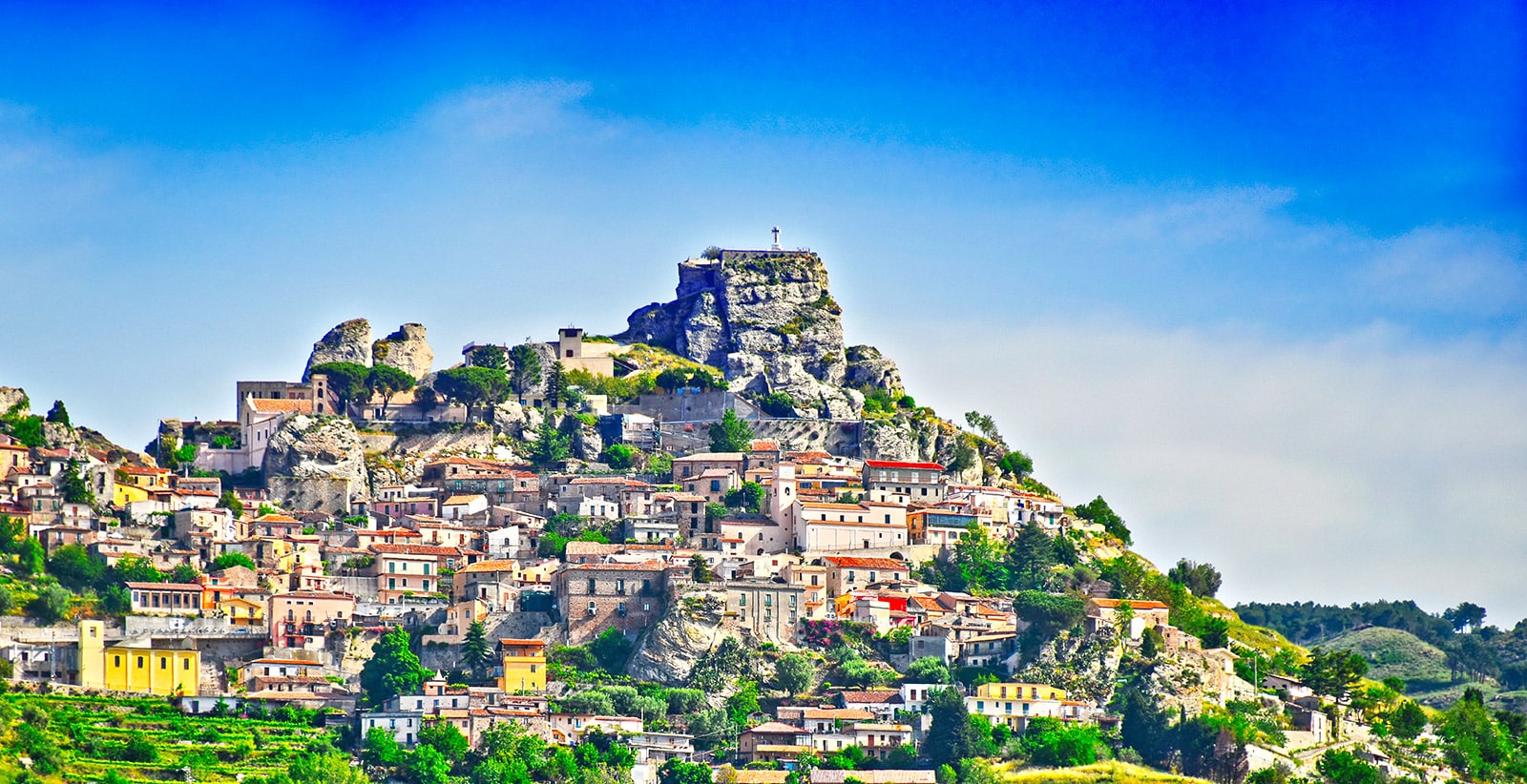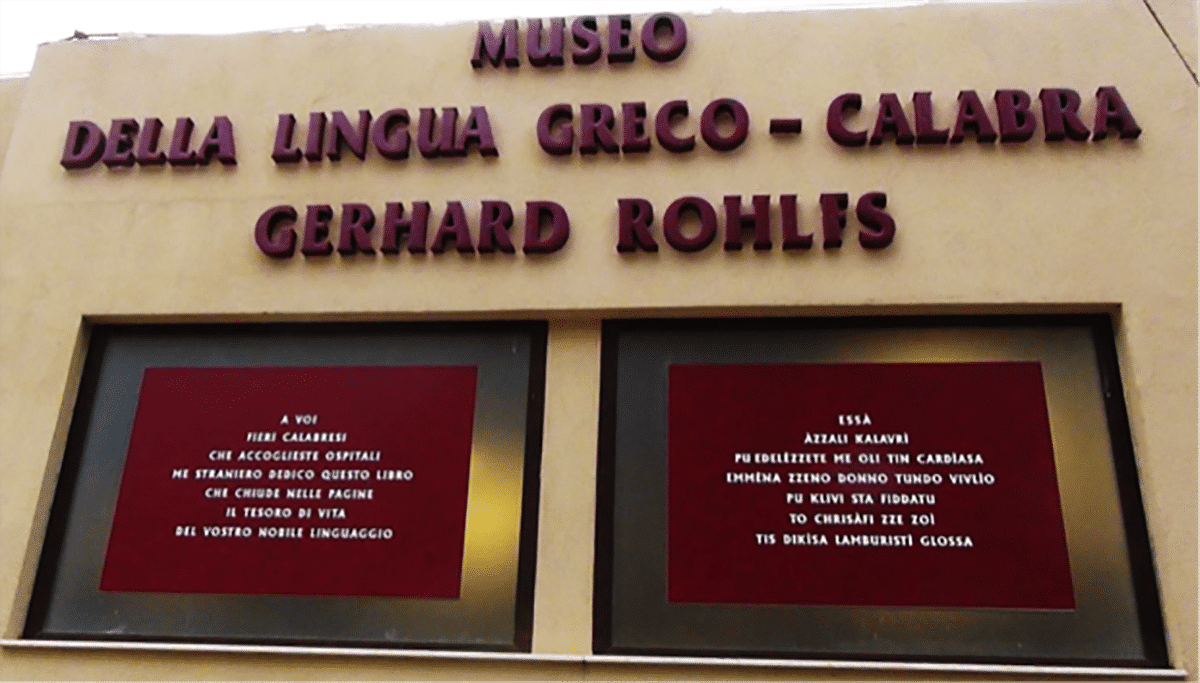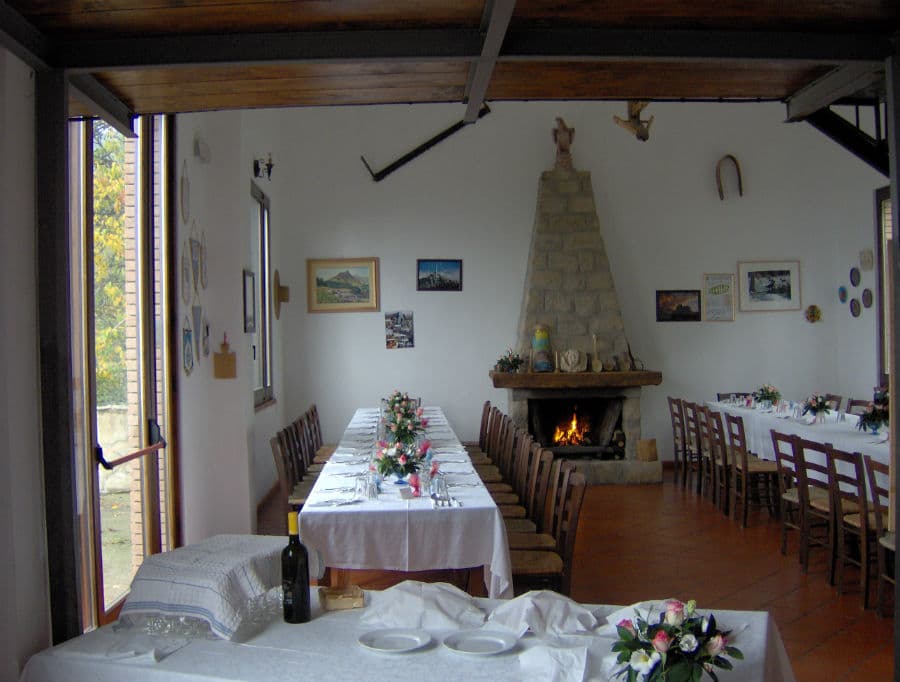The Museum of Greek-Calabrian Language “Gerhard Rohlfs”, inaugurated in Bova in 2016, deals with the enhancement and protection of the cultural heritage of the historical-linguistic minority of the Greeks of Calabria.
The museum structure is located at the entrance of the village, in a particularly symbolic place, as it represents the exact point where the traveler Edward Lear, designed a beautiful glimpse of Bova, during his pilgrimage to Calabria in the mid-nineteenth century. The visit to this original museum allows you to get to know the Greek-Calabrian language, its history and its archaic peculiarities more closely through the exhibition of the linguistic theses formulated by Gerhard Rohlfs who, since 1924, supported the Magna Graecia origin of the spoken that still lives in the Hellenophonic villages of Bova, Gallicianò and Roghudi, in the most impervious slopes of southern Aspromonte.
In the six rooms of the museum, each dedicated to great scholars who have been interested in the intangible heritage of the Greeks of Calabria, it is possible to deepen different aspects of the Greek language, explained both through photos and historical documents, and through audio-visual installations, which allow you to listen and understand this ancestral language, dating back to the times of Homer.
In addition to the exhibition of ethnographic artefacts, which belonged to Gerhard Rohlfs himself, donated to the museum by his son Eckart, it is possible to retrace the vicissitudes of the German linguist, following the presentation of his theses on the Magna Graecia origins of the Greek-Calabrian language, hypothesis that much they shocked the sensitivity of the Italian linguists of the time, as they undermined the nationalist view of the regime, highlighting how ancient Rome had not been able to latinize the entire Italian peninsula. In the Franco Mosino room it is in fact possible to investigate, through current archaeological and paleographic data, but also thanks to reconstructions of historical settings, the millennial path of the Greek-Calabrian language, its transformations by virtue of the contribution of the Byzantine culture and subsequently influences exercised by the repeated foreign dominations that followed one another in the Aspromontane lands of the Greeks of Calabria.
museolinguagrecocalabra@gmail.com




